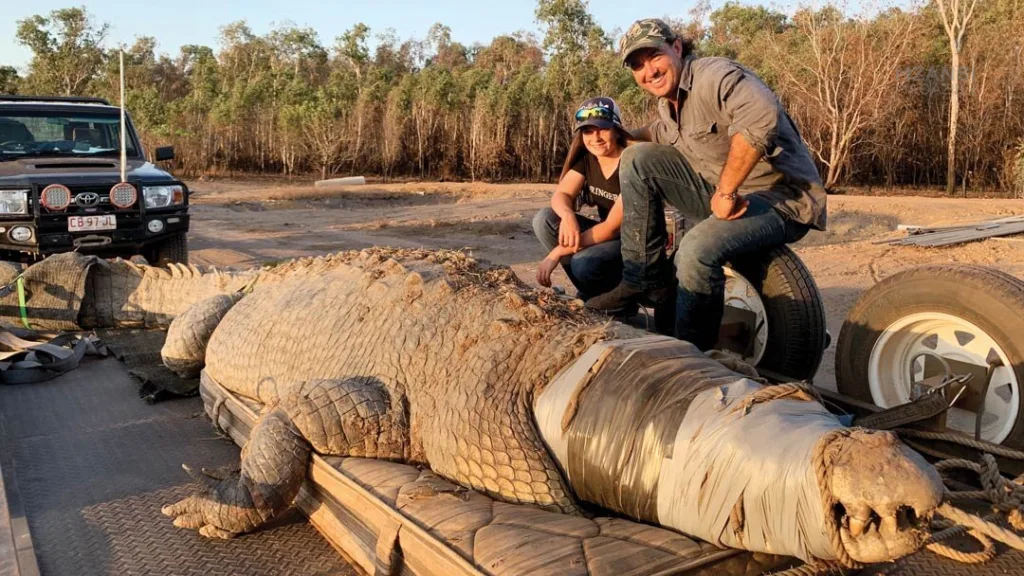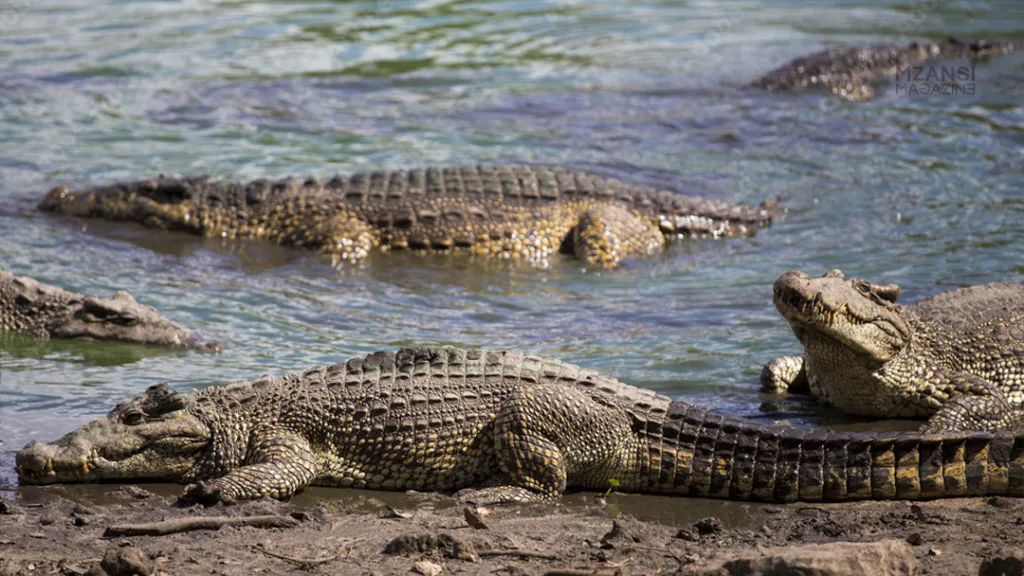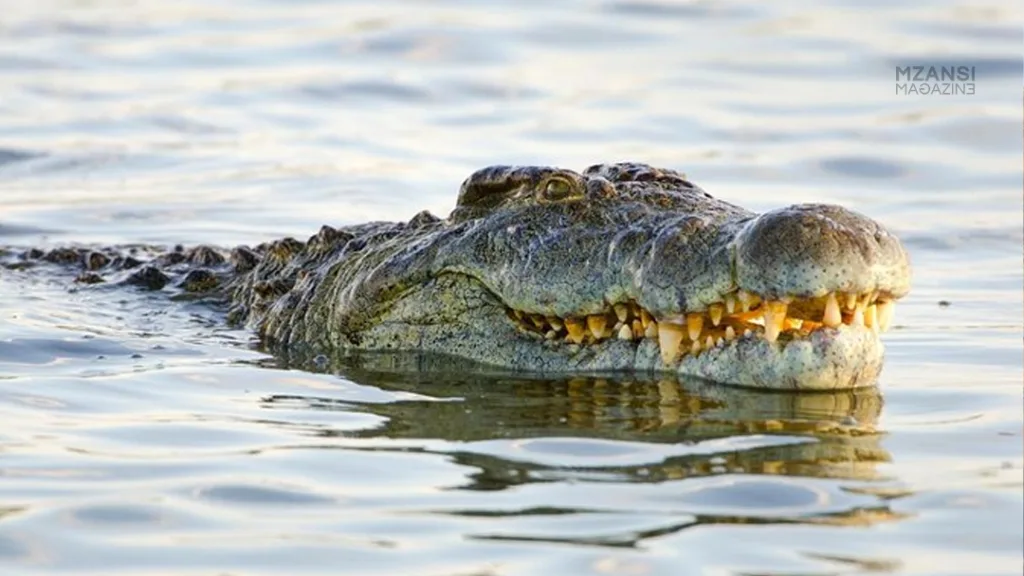Starting a Profitable Crocodile Farm: A Comprehensive Guide
Crocodiles have fascinated humanity for millennia. Not only are they a natural wonder, but they also provide a one-of-a-kind chance for successful farming. However, developing a successful crocodile farm takes meticulous planning, money, and strict adherence to particular rules. This article will review the basic procedures for beginning and operating a profitable crocodile farm.
Table of Contents
It’s important to note that crocodiles are formidable creatures, and the risks associated with farming them are significant. Therefore, it’s crucial to approach this venture with caution and thorough preparation to ensure the safety of both the animals and the farm staff.
Licensing and Research Requirements for Crocodile Farming
Individuals must first acquire the necessary licenses and permits to engage in crocodile farming. Crocodiles are regarded as wildlife, so a special license is mandatory for commercial breeding. The process entails contacting the nearest wildlife service centre to learn the specific procedures for obtaining the necessary licenses.
Before launching a crocodile farming business, conducting thorough research and familiarising oneself with the legal requirements and regulations governing the practice in the area of interest is crucial. This involves understanding the documentation and procedures required to secure the required licenses. By doing so, individuals can ensure compliance with relevant legislation and regulations while mitigating the risk of legal complications.

A successful crocodile farm begins with the wisdom gained from those who came before.
Crocodile Farm Mentorship
Training
Practical knowledge and experience are critical for success in the crocodile farming sector. It is strongly advised to visit existing commercial crocodile farms to learn from experienced farmers and obtain an extensive understanding of the complexity of the industry.
Getting hands-on experience by volunteering or working on established crocodile farms is a great way to learn practical skills in handling and caring for these reptiles. You can learn about various breeding techniques, feeding regimens, and health management practices from experienced professionals, which can significantly enhance your knowledge and expertise in the field.
Selecting the Right Location
When establishing a crocodile farm, choosing the appropriate location is crucial to its success. It is advisable to opt for areas where wild crocodiles thrive naturally, providing a conducive environment for breeding and rearing.
Environmental concerns are essential in deciding whether a region suits a crocodile farm. Temperature, humidity, and availability of water sources are all critical considerations. The chosen location should also meet regulatory criteria and allow adequate room for future development.
Infrastructure Development
Establishing sufficient infrastructure is one of the most essential parts of maintaining a successful crocodile farm. It entails the creation of high-quality facilities tailored to the unique demands of crocodiles. The infrastructure should include well-equipped areas for incubation, growth, and storage, as they are critical to crocodile health and safety. The incubation facilities must be designed to regulate temperature and humidity to guarantee that the eggs hatch effectively.
The grow-out facilities must be large enough to allow the crocodiles to move freely while providing clean water and a portion of balanced food. Storage facilities must be secure and well-ventilated to avoid rotting of feed and other resources. Overall, constructing proper infrastructure is a significant investment for a crocodile farm, but it is critical to the business’s efficiency and profitability.

In the realm of crocodile farming, patience is not just a virtue; it’s a necessity.
Crocodile Hatchlings
Facility Design and Construction
The task at hand involves designing and constructing facilities catering to crocodiles’ unique requirements. This includes creating temperature-controlled incubation rooms and spacious grow-out facilities that align with the natural habitat of crocodiles. It is crucial to ensure that these facilities are equipped with proper insulation and heating systems to maintain the optimum environmental conditions for the crocodiles.
Care and Maintenance
Proper care and upkeep are critical to ensuring the health, safety, and optimal growth of the farm’s crocodiles. This includes developing suitable husbandry methods and adhering to regular maintenance regimens. This reduces the crocodiles’ stress levels, lowering their risk of sickness and other health problems.
Effective husbandry practices include
- providing appropriate feeding and drinking facilities,
- ensuring a clean and comfortable environment and
- monitoring the growth and development of the crocodiles.
Regular maintenance routines involve
- cleaning the enclosures,
- monitoring the water quality, and
- ensure that the temperature and humidity levels fall within the specified range.
By adhering to these care and maintenance practices, the crocodiles have a safe and healthy environment supporting their growth and well-being.
Crocodiles are fascinating creatures of strength and resilience.
Crocodile Farm Pond
Husbandry Practices
Crocodiles must be kept calm and stress-free in order to thrive. This can be accomplished by reducing noise and keeping clean, roomy living spaces. Furthermore, establishing regular feeding schedules and hygiene practices can assist in promoting healthy growth and preventing disease outbreaks. By actively implementing these strategies, we can ensure that our crocodiles live healthy and happy lives.
Harvesting and Marketing
Crocodile farming can be profitable, especially when the crocodiles reach maturity and can be harvested for their meat, skin, and other byproducts. The crocodile leather industry is a significant market, with a high demand for quality leather products such as handbags, shoes, and jackets. In addition, zoos and wildlife parks always look for healthy, well-raised crocodiles to add to their exhibits.
However, to make the most of this opportunity, it’s crucial to develop effective marketing strategies that reach the right audience. This includes identifying potential buyers, understanding their needs and preferences, and creating promotional materials highlighting your product’s unique advantages. Doing so can maximise your profits and build a successful crocodile farming operation.
Market Research and Strategy
Significant market research and developing a sound plan are required to market and sell crocodile items effectively. This includes identifying potential purchasers, deciding appropriate pricing methods, and investigating various marketing platforms to reach a larger audience. Direct sales, retail partnerships, and internet platforms are some channels that can be used to sell crocodile products efficiently. The correct marketing strategy can help you establish a loyal consumer base and increase sales.
Conclusion
If you want to get into crocodile farming, it can be a rewarding but intimidating task. However, with the right strategy and execution, you may build a successful and profitable crocodile farm. By following the methods indicated in this tutorial and allocating enough time and resources, you can ensure your farm runs smoothly and efficiently.

Frequently Asked Questions
Can I make good money by running a crocodile farm in South Africa? Absolutely! Crocodile farming is increasingly popular and profitable in South Africa. To be successful, it takes a considerable upfront investment as well as a long-term commitment.
What kind of licenses do I need to start a crocodile farm? Since crocodiles are considered wildlife, you will need special licenses and permits from the relevant wildlife authorities to start a crocodile farm.
How can I make sure that my crocodiles are well taken care of? You must follow proper husbandry practices, provide suitable living conditions, and ensure your crocodiles receive regular veterinary care to ensure their welfare and well-being.
What are the biggest challenges of running a crocodile farm? The biggest challenges you will face are managing environmental factors, preventing diseases, and complying with regulatory requirements.
Can crocodile farms help conserve crocodile populations in the wild? If managed ethically, crocodile farms can play a role in conservation by relieving pressure on wild populations and encouraging sustainable use of natural resources.

